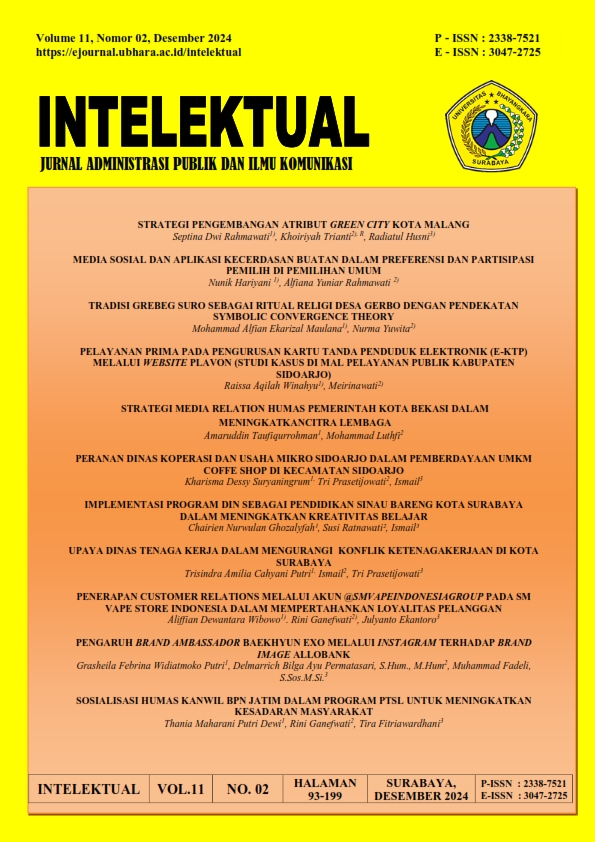Upaya Dinas Tenaga Kerja Dalam Mengurangi Konflik Ketenagakerjaan Di Kota Surabaya
Main Article Content
Abstract
This study aims to determine how the Manpower Office's efforts in reducing labor conflicts in the city of Surabaya and to analyze the obstacles and barriers experienced by the Manpower Office in making its efforts to reduce existing labor conflicts. The focus of the problem in this study is (1) Efforts of the Manpower Office in reducing labor conflicts in the city of Surabaya (2) Supporting and Inhibiting Factors of the Manpower Office in reducing Labor Conflicts in the city of Surabaya. The type of research uses a descriptive method. The data collection method used is the interview method, and the documentation method and the data used in this study are primary data and secondary data. While the research approach used is Qualitative research. In analyzing the data, the author uses data reduction, data presentation and drawing conclusions from the data. The results of this study indicate that the Surabaya City Manpower Office has tried and made various efforts to reduce labor conflicts but there are still various obstacles faced such as (1) lack of coordination between institutions (2) Low awareness of labor regulations (3) Weak law enforcement. Employment Conflicts have yet to show a significant decline. More Comprehensive and Sustainable Efforts are needed from all relevant parties to resolve this problem completely
Article Details

This work is licensed under a Creative Commons Attribution-NonCommercial 4.0 International License.
Authors who publish with Intelektual: Jurnal Administrasi Publik dan Ilmu Komunikasi agree to the following terms:
- The author retains copyright licensed under Creative Commons Attribution-NonCommercial 4.0 (CC BY-NC 4.0), which allows others to remix, adapt, and expand on the author's work non-commercially, and even if someone else's new work must also acknowledge the author and is non-commercial, they do not need to license their derivative works on the same terms.
- Authors are permitted and encouraged to post their work online (e.g., in institutional repositories or on their websites) before and during the submission process, as this can lead to productive exchange, as well as earlier and greater citation of the published work ( See Impact of Open Access). Authors can archive preprints and postprints or publisher/PDF versions.

